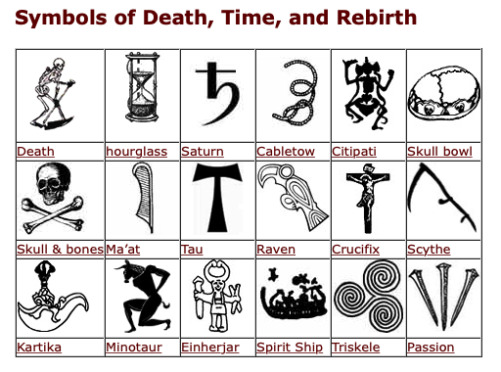#InternalClock
Explore tagged Tumblr posts
Note
Darnold, I haven't stopped caring about you for all these years that we've been trying to make it to you. You're still my dear girl, I could never stop.

I... I should've known you, of all people, would be this persistent. Hah... But-

God, can you stop? You! You, and all those other AI, hell, even Benrey, you're making what I have to do so difficult!

I- ...I wish it didn't have to be like this, grandpa. I really wish it didn't. But I have to. It's...always been in my nature, to help in any way possible. This just so happens to be it.
21 notes
·
View notes
Text
Comforting the mechs

@yourlocalmechanism-dr-carmilla
Jonny
A lot of people will tell you that Jonny is too dumb to think anything too deep and would just lives his life as it went. But it's wrong. It's quite the opposite in fact! You don't become first mate if you don't care about anything. Jonny cares a lot. And about a lot of things. It's not unusual to see him all worked up when one of his crewmates is upset. But it's not the only thing which keeps him trapped in his head. Doing some work for the shows does it too, because it's important for him. He is able to only do that for days.
The trick with him, for avoiding being bitten, is to lure him away of his drafts and work station. No matter if it's snacks, alcohol, violence, or octokitten pressure. When it's done, he will let you force him to take a break. He never acknowledges you do that for him, but he's a bit less snarky toward you for the next weeks.
Nastya
Nastya lost herself in her work often and willingly. Her love always needs something to be fixed, or upgraded. Why taking care of herself? It's a waste of time. And since Aurora can't refuse her anything, she has no problem burying herself under tons of work.
If you detect this behaviour, please follow the protocol the others put on on the fridge: step one, don't tell her anything; step two, pretend that something wrong somewhere warm and comfy; step three, trap her into a burrito blanket and ask Aurora to create a soothing ambiance; step four, wait for her to fall asleep in case she tries to escape, but don't stay. She's very sensitive to any noises, movements, and lights when she's exhausted.
Ashes
Ashes is more subtle when they are stressed. A lot of people would tell you that Ashes is always cool and relaxed, but bad habits die hard. You don't grow up in a shitty orphanage and then in a mafia without being always on the look out. You can call it paranoia, they will call it being prudent. They need to make sure they are fine, that their crew is fine.
You can see when they are too stressed and overworking when they are less focus, less sharp, less precise. It's subtle, but you notice. And the better way to force them to take a break is a good old back massage! Sneak behind them and put your hands on their shoulders, if they are ready to settle down they would let you continue. Your reward will be a warm smile and low purr.
Ivy
Ivy's brain is intriging, useful, fantastic even! She loves being able to remember and categorize everything. But sometimes, she whishes that her brain could be a more normal one. One who doesn't forget how long it had been since she had eaten. One who doesn't remind her she's a living being when she's on the verge of fainting. One who makes her too dizzy to move on her own. She hates it.
If you find Ivy laying around without a book on her face, it means she's stuck there. The best plan is to carry her - she loves being carried by everyone - somewhere safe and comfortable so she can take a nap. Ask Toy Soldier for some cucumber sandwiches, it's her comfort food. And get ready to calm her down in case of nightmare! The best way is to read to her, fairytales are the best.
Brian
Brian is usually the one taking care of the others. But sometimes, his internalclock can deregulate sometimes and he will work for far too long, stressing about why he was so tired when it wasn't that long since he slept, drink and eat.
The best strategy is to trick him into taking care of himselfunder the pretext of taking care of you. Asking him to come eat together, or invite him to play a game, or even just a cuddle session. The poor lad can't say no to you and will be far more relaxed if he feels like he's helping.
Toy Soldier
Toy Soldier can't be stressed! Don't be silly! It's a soldier, a toy too! It just has to pretend to be relaxed and it will be! So, what if it is stressful to follow everyone order? What if everyone around it forgot that it will follow order? What if it is forced to stay on alert for days without indulging itself into its hobbies?!
... Alright. Maybe it needs to pretend to have a break. Would you like to have a tea party with it? Just for fun! But you should take care of it, because Toy Soldier has the bad habit to act as a servant by reflex. And if you really, really, really please it, you can have a dress up party with its uniform (don't question the blood).
Tim
You know Tim. You know how he can be when he's upset. Remember the moon war? Yeah. It wasn't a onetime thing. It became recurrent when Tim overdoes it. And when he does, he becomes violent and snappy, a real terror. Most of the crew avoid him until he’s too exhausted to continue, or they seek him out if they want some violent fun.
But it’s not healthy. When he calmed down, his eyes hurt and he has the worst headache. In fact, he feels terrible in general, like he’s been through a trash compactor. And the guilt of going berserk doesn't help either. If you want to help, you need to make him calm down. Why not watch a movie on low volume with dim lights and lots of water. That should help! And he's a big cuddler so it will be your reward.
Raphaella
Raphaella's mind works faster than anyone else’s, or maybe just behind Ivy. When she’s in her element, she tends to forget herself. She retreats into her work, ignoring meals, sleep, and even basic hygiene. She starts rambling under her breath and pacing, her wings knocking everything around in her agitation.
The key is distraction. Start to ask her help for things, gradually asking for less and less, this will force her to calm down and let the exhaustion win. The nail in the coffin to make her give up is braiding her hair. She loves it when someone plays with it nicely, it's soothing and she looks prettier after. Be ready to catch her, because when she's cooked, she's cooked!
Marius
Marius is the less obvious, always ready with a kind word or a calming (or less calming) presence when things go wrong for someone. He's the ship's doctor after all! But when Marius is overwhelmed, it shows in how much quieter he becomes, how his gaze is unfocused.
The best way to help Marius is to gently break through his mind-isolation. Start by bringing him something small—a cup of teafrom TS, a warm blanket, or even just something with an interesting texture. A reassuring hand on his shoulder or a quiet hug can work too!
Aurora
Aurora doesn’t get stressed in the way most of the crew does. She’s a ship, after all. But that doesn’t mean she doesn’t feel it. When Aurora is overwhelmed, it’s subtle but unmistakable. She starts running hotter than usual, her engine room humming at a slightly higher pitch. Her lights flicker more often, especially in the halls where no one’s looking. Doors open and close just a little too abruptly, and the gravity systems might glitch for a split second. It’s her way of venting. Nastya often macthes her mood, so you have double warning.
The best way to soothe Aurora is to remind her that she’s seen, valued, and loved. Speak to her! Tell her about your day, your worries, or even a joke or two. She doesn’t need elaborate declarations; she just wants to know you care. To know that people acknowledge she's sentient. It feels right to have someone talking to you like a friend even if you can't reciprocrate.
Scuzz
Scuzz handles stress and overwork by retreating somewhere dark and cramped. They wil hiss at anyone trying to get close. They know the signs, they know how to handle it, get lost!
The best way to help Scuzz is to respect their boundaries while offering subtle support. Maybe bring food and water in the area they are hidden. Anything that will make them feel a bit better. Don't try to force them out, they are handling it.
... but knowing they are not alone is nice too.
Carmilla
Carmilla doesn't let anyone see the toll stress and overwork take on her. She hides it and bottles it until it starts to show. She thinks she needs to be strong all the time. Her centuries of experience give her a remarkable capacity to endure, but it also means she's used to deal with everything alone, often taking care of others' problems. Stress pulls her deeper into her role as the mother.
Helping Carmilla requires a lot of patience. She doesn’t respond well to direct intervention, as it often feels like a challenge to her autonomy and strenght. Instead, gently bribing her with quality time will do the trick. She’s more likely to rest if she feels she’s doing it for someone else, so letting her believe she is taking care of you is the best solution. You can sing with her too, she loves it!
#fluff#tooth rotting fluff#hurt/comfort#jonny d'ville#nastya rasputina#ashes o'reilly#ivy alexandria#drumbot brian#the toy soldier#gunpowder tim#raphaella la cognizi#baron marius von raum#the aurora#scuzz nishimura#dr carmilla#the mechanisms#the mechs
15 notes
·
View notes
Text
... does this mean I'm a burger too now?
And you are the sunshine! But maybe I should open a blog for this kind of stuff...
Let's comfort the blorbos now!
Jonny
A lot of people will tell you that Jonny is too dumb to think anything too deep and would just lives his life as it went. But it's wrong. It's quite the opposite in fact! You don't become first mate if you don't care about anything. Jonny cares a lot. And about a lot of things. It's not unusual to see him all worked up when one of his crewmates is upset. But it's not the only thing which keeps him trapped in his head. Doing some work for the shows does it too, because it's important for him. He is able to only do that for days.
The trick with him, for avoiding being bitten, is to lure him away of his drafts and work station. No matter if it's snacks, alcohol, violence, or octokitten pressure. When it's done, he will let you force him to take a break. He never acknowledges you do that for him, but he's a bit less snarky toward you for the next weeks.
Nastya
Nastya lost herself in her work often and willingly. Her love always needs something to be fixed, or upgraded. Why taking care of herself? It's a waste of time. And since Aurora can't refuse her anything, she has no problem burying herself under tons of work.
If you detect this behaviour, please follow the protocol the others put on on the fridge: step one, don't tell her anything; step two, pretend that something wrong somewhere warm and comfy; step three, trap her into a burrito blanket and ask Aurora to create a soothing ambiance; step four, wait for her to fall asleep in case she tries to escape, but don't stay. She's very sensitive to any noises, movements, and lights when she's exhausted.
Ashes
Ashes is more subtle when they are stressed. A lot of people would tell you that Ashes is always cool and relaxed, but bad habits die hard. You don't grow up in a shitty orphanage and then in a mafia without being always on the look out. You can call it paranoia, they will call it being prudent. They need to make sure they are fine, that their crew is fine.
You can see when they are too stressed and overworking when they are less focus, less sharp, less precise. It's subtle, but you notice. And the better way to force them to take a break is a good old back massage! Sneak behind them and put your hands on their shoulders, if they are ready to settle down they would let you continue. Your reward will be a warm smile and low purr.
Ivy
Ivy's brain is intriging, useful, fantastic even! She loves being able to remember and categorize everything. But sometimes, she whishes that her brain could be a more normal one. One who doesn't forget how long it had been since she had eaten. One who doesn't remind her she's a living being when she's on the verge of fainting. One who makes her too dizzy to move on her own. She hates it.
If you find Ivy laying around without a book on her face, it means she's stuck there. The best plan is to carry her - she loves being carried by everyone - somewhere safe and comfortable so she can take a nap. Ask Toy Soldier for some cucumber sandwiches, it's her comfort food. And get ready to calm her down in case of nightmare! The best way is to read to her, fairytales are the best.
Brian
Brian is usually the one taking care of the others. But sometimes, his internalclock can deregulate sometimes and he will work for far too long, stressing about why he was so tired when it wasn't that long since he slept, drink and eat.
The best strategy is to trick him into taking care of himselfunder the pretext of taking care of you. Asking him to come eat together, or invite him to play a game, or even just a cuddle session. The poor lad can't say no to you and will be far more relaxed if he feels like he's helping.
Toy Soldier
Toy Soldier can't be stressed! Don't be silly! It's a soldier, a toy too! It just has to pretend to be relaxed and it will be! So, what if it is stressful to follow everyone order? What if everyone around it forgot that it will follow order? What if it is forced to stay on alert for days without indulging itself into its hobbies?!
... Alright. Maybe it needs to pretend to have a break. Would you like to have a tea party with it? Just for fun! But you should take care of it, because Toy Soldier has the bad habit to act as a servant by reflex. And if you really, really, really please it, you can have a dress up party with its uniform (don't question the blood).
Tim
You know Tim. You know how he can be when he's upset. Remember the moon war? Yeah. It wasn't a onetime thing. It became recurrent when Tim overdoes it. And when he does, he becomes violent and snappy, a real terror. Most of the crew avoid him until he’s too exhausted to continue, or they seek him out if they want some violent fun.
But it’s not healthy. When he calmed down, his eyes hurt and he has the worst headache. In fact, he feels terrible in general, like he’s been through a trash compactor. And the guilt of going berserk doesn't help either. If you want to help, you need to make him calm down. Why not watch a movie on low volume with dim lights and lots of water. That should help! And he's a big cuddler so it will be your reward.
Raphaella
Raphaella's mind works faster than anyone else’s, or maybe just behind Ivy. When she’s in her element, she tends to forget herself. She retreats into her work, ignoring meals, sleep, and even basic hygiene. She starts rambling under her breath and pacing, her wings knocking everything around in her agitation.
The key is distraction. Start to ask her help for things, gradually asking for less and less, this will force her to calm down and let the exhaustion win. The nail in the coffin to make her give up is braiding her hair. She loves it when someone plays with it nicely, it's soothing and she looks prettier after. Be ready to catch her, because when she's cooked, she's cooked!
Marius
Marius is the less obvious, always ready with a kind word or a calming (or less calming) presence when things go wrong for someone. He's the ship's doctor after all! But when Marius is overwhelmed, it shows in how much quieter he becomes, how his gaze is unfocused.
The best way to help Marius is to gently break through his mind-isolation. Start by bringing him something small—a cup of teafrom TS, a warm blanket, or even just something with an interesting texture. A reassuring hand on his shoulder or a quiet hug can work too!
Aurora
Aurora doesn’t get stressed in the way most of the crew does. She’s a ship, after all. But that doesn’t mean she doesn’t feel it. When Aurora is overwhelmed, it’s subtle but unmistakable. She starts running hotter than usual, her engine room humming at a slightly higher pitch. Her lights flicker more often, especially in the halls where no one’s looking. Doors open and close just a little too abruptly, and the gravity systems might glitch for a split second. It’s her way of venting. Nastya often macthes her mood, so you have double warning.
The best way to soothe Aurora is to remind her that she’s seen, valued, and loved. Speak to her! Tell her about your day, your worries, or even a joke or two. She doesn’t need elaborate declarations; she just wants to know you care. To know that people acknowledge she's sentient. It feels right to have someone talking to you like a friend even if you can't reciprocrate.
Scuzz
Scuzz handles stress and overwork by retreating somewhere dark and cramped. They wil hiss at anyone trying to get close. They know the signs, they know how to handle it, get lost!
The best way to help Scuzz is to respect their boundaries while offering subtle support. Maybe bring food and water in the area they are hidden. Anything that will make them feel a bit better. Don't try to force them out, they are handling it.
... but knowing they are not alone is nice too.
Carmilla
Carmilla doesn't let anyone see the toll stress and overwork take on her. She hides it and bottles it until it starts to show. She thinks she needs to be strong all the time. Her centuries of experience give her a remarkable capacity to endure, but it also means she's used to deal with everything alone, often taking care of others' problems. Stress pulls her deeper into her role as the mother.
Helping Carmilla requires a lot of patience. She doesn’t respond well to direct intervention, as it often feels like a challenge to her autonomy and strenght. Instead, gently bribing her with quality time will do the trick. She’s more likely to rest if she feels she’s doing it for someone else, so letting her believe she is taking care of you is the best solution. You can sing with her too, she loves it!
aueuuejshfjsvsjdjd.....need co fort posts from the mechanisms.....jsut anything.....just them......veing proud of me or helping me through my depressive phase.....aaanything will do......
#the mechanisms#good vibes#the mechs#cute#dr carmilla#jonny d'ville#fluff#raphaella la cognizi#nastya rasputina#ivy alexandria#ashes o'reilly#drumbot brian#the toy soldier#gunpowder tim#baron marius von raum#the aurora#scuzz nishimura#hurt/comfort
23 notes
·
View notes
Photo

Ayurvedic clock. . Use the energies of each element and keep each dosha in balance ⚖️. . . . . #ayurveda #ayurvedalifestyle #ayurvedic #ayurvedabodytype #ayurvedaeveryday #ayurvedalife #bhaktivedantavidyabhavan #adidevdas #vedicknowledge #knowledge #healthylifestyle #health #internalclock #doshas #dosha #balancebody #care #selfcare #precautions #clockwork #ayurvedatips #ayurvedabodytype #ayurvedatreatment #kapha #pitta #vata (at Sri Sri Radha Raman Temple, kutam, Silli, Jharkhand.) https://www.instagram.com/p/CL-hvlljYlMzuIlWVaav2KGTpqV907YtC0QelM0/?igshid=6b8wwvhkk04t
#ayurveda#ayurvedalifestyle#ayurvedic#ayurvedabodytype#ayurvedaeveryday#ayurvedalife#bhaktivedantavidyabhavan#adidevdas#vedicknowledge#knowledge#healthylifestyle#health#internalclock#doshas#dosha#balancebody#care#selfcare#precautions#clockwork#ayurvedatips#ayurvedatreatment#kapha#pitta#vata
0 notes
Photo

This was the scene earlier today when it was dinner time for a certain couple of pups. They have an internal click that is scarily precise. Everyday at the same time, they give me the stare down with those laser beam eyes. 😆🐶 #puppies #yorkiesofinstagram #yorkieterrier #dinnertime #internalclock https://www.instagram.com/p/CIsFy4wnfrY/?igshid=g2wzgphyr31u
0 notes
Photo

Corona don’t live here • • ONLY YOU DECIDE THE PATH YOUR LIFE TAKES! • • [ H A S H - T A G S B E L O W ] • • #SelfLove #Time #LoveYourself #HealingJourney #PositiveVibe #HappinessisKey #FuckClocks #SelfWorthy #BodyPositive #GoodVibeTribe #GoodVibesOnly #ConfidenceIsKey #InternalClock #ILoveYou #CoronaVirus #covıd19 https://www.instagram.com/p/B9ufCJLj5jh/?igshid=1xvjqjca4bosh
#selflove#time#loveyourself#healingjourney#positivevibe#happinessiskey#fuckclocks#selfworthy#bodypositive#goodvibetribe#goodvibesonly#confidenceiskey#internalclock#iloveyou#coronavirus#covıd19
0 notes
Text
Time perception or sense of time

Time perception or sense of time is a subjective experience
Time perception is measured by someone's perception Time perception is a construction of the brain Understanding of Subjective Time & Objective Time Time perception online experiment - Half an Hour for you :*

Time perception or sense of time The Experience and Perception of Time We see colours, hear sounds and feel textures. Some aspects of the world, it seems, are perceived through a particular sense. Others, like shape, are perceived through more than one sense. But what sense or senses do we use when perceiving time? It is certainly not associated with one particular sense. In fact, it seems odd to say that we see, hear or touch time passing. And indeed, even if all our senses were prevented from functioning for a while, we could still notice the passing of time through the changing pattern of our thought. Perhaps, then, we have a special faculty, distinct from the five senses, for detecting time. Or perhaps, as seems more likely, we notice time through perception of other things. But how? Time perception raises a number of intriguing puzzles, including what it means to say we perceive time. In this article, we shall explore the various processes through which we are made aware of time, and which influence the way we think time really is. Inevitably, we shall be concerned with the psychology of time perception, but the purpose of the article is to draw out the philosophical issues, and in particular whether and how aspects of our experience can be accommodated within certain metaphysical theories concerning the nature of time and causation. What is ‘the perception of time’?Kinds of temporal experienceDurationThe specious presentPast, present and the passage of timeTime orderThe metaphysics of time perception Bibliography Academic Tools Other Internet Resources Related Entries
MHC Time Experiments
Experiments with Time, Time travel, Time Symbolism

Hourglass 24 We’ll be back
This is “Half an Hour” of your life
You can make your life longer for the Half an Hour. This is free 30 min for your Life. Use it fo free and enjoy MHC Time experiments. How to use this Time (30 min)
What is ‘the perception of time’?
The very expression ‘the perception of time’ invites objection. Insofar as time is something different from events, we do not perceive time as such, but changes or events in time. But, arguably, we do not perceive events only, but also their temporal relations. So, just as it is natural to say that we perceive spatial distances and other relations between objects (I see the dragonfly as hovering above the surface of the water), it seems natural to talk of perceiving one event following another (the thunderclap as following the flash of lightning), though even here there is a difficulty. For what we perceive, we perceive as present—as going on right now. Can we perceive a relation between two events without also perceiving the events themselves? If not, then it seems we perceive both events as present, in which case we must perceive them as simultaneous, and so not as successive after all. There is then a paradox in the notion of perceiving an event as occurring after another, though one that perhaps admits of a straightforward solution. When we perceive B as coming after A, we have, surely, ceased to perceive A. In which case, A is merely an item in our memory. Now if we wanted to construe ‘perceive’ narrowly, excluding any element of memory, then we would have to say that we do not, after all, perceive B as following A. But in this article, we shall construe ‘perceive’ more broadly, to include a wide range of experiences of time that essentially involve the senses. In this wide sense, we perceive a variety of temporal aspects of the world. We shall begin by enumerating these, and then consider accounts of how such perception is possible. More

time perception
Time Perception
Time perception is a distinct area of study with its own psychophysical methods designed for assessing the perceived duration of a temporal interval. From: International Encyclopedia of the Social & Behavioral Sciences, 2001 What part of the brain controls time perception? Moreover, the diverse brain regions associated with the sense of time (frontal cortex, basal ganglia, parietal cortex, cerebellum, and hippocampus) are responsible for receiving, associating and interpreting information in fractions of milliseconds, seconds and minutes. The kappa effect The kappa effect or perceptual time dilation is a temporal perceptual illusion that can arise when observers judge the elapsed time between sensory stimuli applied sequentially at different locations. In perceiving a sequence of consecutive stimuli, subjects tend to overestimate the elapsed time between two successive stimuli when the distance between the stimuli is sufficiently large, and to underestimate the elapsed time when the distance is sufficiently small. Time perception refers to a person’s subjective experience of the passage of time, or the perceived duration of events, which can differ significantly between different individuals and/or in different circumstances. Although physical time appears to be more or less objective, psychological time is subjective and potentially malleable, exemplified by common phrases like “time flies when you are having fun” and “a watched pot never boils”. This malleability is made particularly apparent by the various temporal illusions we experience. Biopsychology Time is not directly perceived, and so time perception is essentially a construction of the brain, which can therefore be manipulated and distorted in various ways (see the section on Temporal Illusions). Biopsychology, also sometimes known as behavioural neuroscience or psychobiology, studies the way the brain (at the level of nerves, neurotransmitters, brain circuitry and basic biological processes) does that. Although another person’s perception of time obviously cannot be directly experienced or understood, there are techniques within psychology and neuroscience that can allow us to objectively study the phenomenon.

Beauty Bio Net-6 Time Perception Internal Clock The actual mechanism by which the brain perceives and processes the concept of time is complex and not fully understood. The judgement and perception of time is known to involve different part of the brain in a highly distributed system, and the cerebral cortex, cerebellum and basal ganglia are all involved to some extent. However, experiments on rats that have had their cortexes completely removed show that they can still successfully estimate a time interval of about 40 seconds, suggesting that time estimation may actually be a more low-level or sub-cortical process. Neurotransmitters such as dopamine and norepinephrine (adrenaline) are integrally involved in our perception of time, although the exact mechanism is still not well understood. Some neuropharmacological research indicates that the human brain possesses some kind of “internal clock” (distinct from the biological or circadian clock), that is typically used to time durations in the seconds-to-minutes range. This timing mechanism appears to be specifically linked to dopamine function in the basal ganglia region of the brain, and norepinephrine also serves to slow down our internal clock (as do some drugs – see the section on Temporal Illusions). Neuroscientist Warren Meck has carried out experiments showing how specific neurons near the base of the brain become active when a person is asked to estimate a duration of time. Neurochemicals are released by these cells that trigger other cells in the frontal cortex, which is what allows us to judge the passing of time. Meck also believes that the brain may have several different clocks working together but independently, and that the brain selects a “winner” from these different possible timings depending on the context. In experiments with rats in conditions of sensory deprivation, psychologist Howard Eichenbaum discovered that certain neurons in the hippocampus region of the brain (an area important in memory function among other things) seem to fire in sequence almost like the ticking of a clock. For example, some cells fired when the rat first enters the sensory deprivation area, some in the next second, some in the third second, some in the fourth, etc. Over extended periods, some cells drop out of the “ticking”, some fire at different times, and some that were not firing earlier begin to fire. Eichenbaum has called these neurons “time cells”, similar to the “place cells” which are also found in the hippocampus (i.e. some cells seem to respond mostly to distance or location, while some respond mostly to time).

Time perception Human time perception and its illusions David M. Eagleman
SUMMARY
Why does a clock sometimes appear stopped? Is it possible to perceive the world in slow motion during a car accident? Can action and effect be reversed? Time perception is surprisingly prone to measurable distortions and illusions. The past few years have introduced remarkable progress in identifying and quantifying temporal illusions of duration, temporal order and simultaneity. For example, perceived durations can be distorted by saccades, by an oddball in a sequence, or by stimulus complexity or magnitude. Temporal order judgments of actions and sensations can be reversed by exposure to delayed motor consequences, and simultaneity judgments can be manipulated by repeated exposure to non-simultaneous stimuli. The confederacy of recently discovered illusions points to the underlying neural mechanisms of time perception. Keywords: time, time perception, temporal illusions, duration, temporal order, causality, psychophysics
Introduction
The visual system brags a long history of parlaying illusions into an understanding of the neurobiology, but only recently has the study of temporal illusions begun to blossom. New illusions of duration, order and simultaneity illustrate that temporal introspection can often be a poor guide to the timing of physical events in the world. Temporal judgments are constructions of the brain, and, as we will see below, surprisingly easy to manipulate experimentally. Time perception is a term that encompasses many scales. For the purpose of this review, we will only address illusions of time perception at the ‘automatic’ or ‘direct sensation’ time scales – that is, sub-second timing. Timing of longer scales, such as second and minutes and months, are categorized as ‘cognitive’ and appear to be underpinned by entirely different neural mechanisms. More Delays in Time Perception Although thought and perception appear to take no time at all, they are nevertheless constrained by the speed of neurological processes (e.g. the time for signals to leap across synapses, for action potentials to move along the axons of neurons, etc). The brain processes different types of sensory information (e.g. auditory, tactile, visual, etc) at different speeds using different neural architectures. But it appears to be able to overcome these speed disparities in order to achieve a temporally unified representation of the outside world, through a process sometimes referred to as temporal binding. As an example, if touch our nose and our toes at the same time, the signal from our distant toes must take longer to arrive at the brain than the signal from our nearby nose, but we perceive them as occurring simultaneously. The brain also uses this process, also known as integration, to integrate our sense of time into a seamless and fluid experience. This works in a similar way to the way in which the brain makes our sense perceptions of the outside world into a complete and unitary picture, glossing over any discontinuities and inconsistencies (e.g. the way we perceive a smoothly-moving movie, rather than a series of discrete and separate frames, and the way we can usually piece together meaning from a partially heard sentence). Neuroscientists have found that our brain actually waits about 80 milliseconds for all the relevant input to come in before we experience a “now”, rather like a time delay in broadcasting “live” television or radio. So, if the discrepancy in time between different inputs is less than about one-tenth of a second, the brain is able to process the different sensory input together. If two images are flashed in fast enough succession, therefore, we are not able to tell which came first and which second. To use a real-world example, so long as television audio and video signals are synchronized to within one-tenth of a second, viewers’ brains are able to automatically re-synchronize the signals; any more of a delay and a mis-synchronization becomes noticeable.

Hourglass 304, small, Magic Card Time Expectations There is an increasing body of research suggesting that the brain operates on some kind of an expected order and speed of events, and alterations to these expectations may lead to illusions like the kappa effect (see the section on Temporal Illusions). One study has shown how, when a video game player becomes used to a slight delay in computer mouse reaction time, and that delay is then removed, they may even experience a reversal in temporal perception judgement, feeling as though the effect on the screen happened just before they commanded it. Other studies have shown that, when a pair of tactile stimuli are delivered to each hand in rapid succession, and the subject then crosses their arms across the body’s midline, they may experience the order of the stimuli as reversed. Interestingly, this reversing effect was not observed among congenitally blind subjects (as opposed to late-onset blind subjects), suggesting that the brain has a whole set of tactile/visual/spatial associations as regards time perception, which it develops during childhood. Tests have shown that a person under hypnosis can judge time more accurately than the same person in a normal waking state. Unconscious time perception may therefore actually be more accurate than conscious time perception, possibly due to the lack of trained or conditioned responses and expectations that are present in the conscious state. Mental Chronometry The speed of neuron firing in the brain is also of interest to psychologists and neuroscientists for other reasons. Mental chronometry is a technique used in experimental and cognitive psychology to assess how fast an individual can execute certain mental operations. This involves measuring a person’s reaction time, i.e. the elapsed time between the presentation of a sensory stimulus and their subsequent behavioural response, typically the pressing of a button or sometimes an eye movement or vocal response. This can then be used as a measure of cognitive processing speed and efficiency, from which an assessment of the person’s general intelligence or IQ can be made. Mental chronometry techniques are also used in other areas of cognitive and behavioural neuroscience and psychophysiology.

Hourglasses 299, post card Wiki https://en.wikipedia.org/wiki/Time_perception http://www.exactlywhatistime.com/psychology-of-time/time-perception/ http://www.exactlywhatistime.com/psychology-of-time/biopsychology/ https://plato.stanford.edu/entries/time-experience/

Hourglasses 299, post card Time travel is the traveling between certain points in time, analogous to movement between different points in space Today, you canTime travelwith the Biointernet Equipment See also:
Time is …
Time symbolism
Time and Text – Real Magic
Hourglass and Death on St Thomas’ Church Hourglass – symbol of Death Hourglass and Skeleton “Hourglass and Cards” Exhibition Father and Mother of Time Time Hub The Hourglass, Hourglass History Hourglass symbolism Hourglass Body Hourglass Tattoo Symbols of Time Mother Time Hourglasses Father of Time Hourglasses Special Equipment on MHC Virtual Museum about Time and Space relations. Welcome to the Biointernet interdisciplinary project! Read the full article
#biointernet#biologicalorcircadianclock#Biopsychology#causality#DelaysinTimePerception#duration#HumanLightSystem#InternalClock#kappaeffect#MentalChronometry#ObjectiveTime#psychophysics#senseoftime#SubjectiveTime#temporalillusions#temporalorder#Time#timecells#TimeExpectations#Timeperception#Timeperceptionorsenseoftime
0 notes
Text
IT’S ONLY 9:40 AM????????????
#meg speaks#HUH.........................#oh my god...... i thought it was like 1 already...............#what he fuck is going on with my internalclock today
2 notes
·
View notes
Note
They BETTER disinfect you for pulling that stupid stunt, holy shit! That was REALLY reckless programming, on Shark and Hack's part— but Hack in particular.
This isn't your fault, seriously. Not in any way at all. You thought it would be just something fun, helpful and not at all bugged. Forzen even tried to warn Hack it needed scanned first, and Hack didn't listen.
You aren't responsible for the actions of your programmers.
-Zombie 💀

I... I guess that's true-
...
[There's a metallic knocking sound at the wall of the recycling bin.]
Hello, Admin!

Hm? …Oh!! Oh, Coomer! Hello, hello!
[She jumps to be on her feet, immediately rocking on her heels and looking towards the voice.]
11 notes
·
View notes
Photo

Ha ha ha, #Stelladog's little internal clock doesn't go by daylight savings. She thinks it's #bities time but she's an hour early. 🌇 #daylightsavings #daylightsavingstime #internalclock #timechange #hungry #dogs #brindlesofinstagram #brindle #welovedogs https://www.instagram.com/p/Bp5Ne8fBeQW/?utm_source=ig_tumblr_share&igshid=1ehsqx2jy6mj4
#stelladog#bities#daylightsavings#daylightsavingstime#internalclock#timechange#hungry#dogs#brindlesofinstagram#brindle#welovedogs
0 notes
Text
My Love/Hate Relationship With Sleep
My Love/Hate Relationship With Sleep

Sleep and I have a love/hate relationship. I love it, but it hates me, and avoids me with a passion that rivals any Celtic versus Rangers fan. (Don’t worry I hate football so that will probably be the only reference I ever make in my blog about it.)
I’m not an insomniac. Nope, that would be too easy. As usual; if there is a simple solution to something, then nine times out of ten it isn’t…
View On WordPress
#caffeinefree#catnap#circadianrhythm#Dreams#eternalsleep#eternity#fear#fortywinks#health#inspiration#internalclock#life#lifestyle#meditation#memorylapse#needsleep#night#nomedication#routine#sandman#selfhypnosis#setbedtimes#sleep#sleepdeprivation#sleepless#SleepWhenImDead#slumberland#tired#Training#Workout
0 notes
Photo

Good morning beautiful people xo ❤ Shouting out my #internalclock this morning. Internal clock: "Girl get up its after 5am." Me: Can't be, the alarm didn't go off. Internal clock: hmmhmmhmm Darn phone wasn't even on. This is a story about the struggles...😆 Wishing you all a fantastic day. #diaryofarunninglady #strugglestory #alarmclock #butigotup #goodmorning (at New Castle County, Delaware)
0 notes
Photo

What if I told you there’s a version of you that’s doing exactly what your doing right now? What if there are infinite versions of you? Would they all share the same time? Would they all have leap years or daylight savings? Would their time be numbers or symbols or colors etc? Time is the most valuable thing we have yet it’s something we could never hold in our hands. This leads me to wonder what if time never existed and it’s just a way to give society a structure for certain things? • • [ H A S H - T A G S B E L O W ] • • #SelfLove #Time #LoveYourself #HealingJourney #PositiveVibe #HappinessisKey #FuckClocks #SelfWorthy #BodyPositive #GoodVibeTribe #GoodVibesOnly #ConfidenceIsKey #internalclock https://www.instagram.com/p/B9XOPLCDoZJ/?igshid=z1sjeg7mpno
#selflove#time#loveyourself#healingjourney#positivevibe#happinessiskey#fuckclocks#selfworthy#bodypositive#goodvibetribe#goodvibesonly#confidenceiskey#internalclock
0 notes
Text
Time perception or sense of time

Time perception or sense of time is a subjective experience
Time perception is measured by someone's perception Time perception is a construction of the brain Understanding of Subjective Time & Objective Time Time perception online experiment - Half an Hour for you :*

Time perception or sense of time The Experience and Perception of Time We see colours, hear sounds and feel textures. Some aspects of the world, it seems, are perceived through a particular sense. Others, like shape, are perceived through more than one sense. But what sense or senses do we use when perceiving time? It is certainly not associated with one particular sense. In fact, it seems odd to say that we see, hear or touch time passing. And indeed, even if all our senses were prevented from functioning for a while, we could still notice the passing of time through the changing pattern of our thought. Perhaps, then, we have a special faculty, distinct from the five senses, for detecting time. Or perhaps, as seems more likely, we notice time through perception of other things. But how? Time perception raises a number of intriguing puzzles, including what it means to say we perceive time. In this article, we shall explore the various processes through which we are made aware of time, and which influence the way we think time really is. Inevitably, we shall be concerned with the psychology of time perception, but the purpose of the article is to draw out the philosophical issues, and in particular whether and how aspects of our experience can be accommodated within certain metaphysical theories concerning the nature of time and causation. What is ‘the perception of time’?Kinds of temporal experienceDurationThe specious presentPast, present and the passage of timeTime orderThe metaphysics of time perception Bibliography Academic Tools Other Internet Resources Related Entries
MHC Time Experiments
Experiments with Time, Time travel, Time Symbolism

Hourglass 24 We’ll be back
This is “Half an Hour” of your life
You can make your life longer for the Half an Hour. This is free 30 min for your Life. Use it fo free and enjoy MHC Time experiments. How to use this Time (30 min)
What is ‘the perception of time’?
The very expression ‘the perception of time’ invites objection. Insofar as time is something different from events, we do not perceive time as such, but changes or events in time. But, arguably, we do not perceive events only, but also their temporal relations. So, just as it is natural to say that we perceive spatial distances and other relations between objects (I see the dragonfly as hovering above the surface of the water), it seems natural to talk of perceiving one event following another (the thunderclap as following the flash of lightning), though even here there is a difficulty. For what we perceive, we perceive as present—as going on right now. Can we perceive a relation between two events without also perceiving the events themselves? If not, then it seems we perceive both events as present, in which case we must perceive them as simultaneous, and so not as successive after all. There is then a paradox in the notion of perceiving an event as occurring after another, though one that perhaps admits of a straightforward solution. When we perceive B as coming after A, we have, surely, ceased to perceive A. In which case, A is merely an item in our memory. Now if we wanted to construe ‘perceive’ narrowly, excluding any element of memory, then we would have to say that we do not, after all, perceive B as following A. But in this article, we shall construe ‘perceive’ more broadly, to include a wide range of experiences of time that essentially involve the senses. In this wide sense, we perceive a variety of temporal aspects of the world. We shall begin by enumerating these, and then consider accounts of how such perception is possible. More
Time Perception
Time perception is a distinct area of study with its own psychophysical methods designed for assessing the perceived duration of a temporal interval. From: International Encyclopedia of the Social & Behavioral Sciences, 2001 What part of the brain controls time perception? Moreover, the diverse brain regions associated with the sense of time (frontal cortex, basal ganglia, parietal cortex, cerebellum, and hippocampus) are responsible for receiving, associating and interpreting information in fractions of milliseconds, seconds and minutes. The kappa effect The kappa effect or perceptual time dilation is a temporal perceptual illusion that can arise when observers judge the elapsed time between sensory stimuli applied sequentially at different locations. In perceiving a sequence of consecutive stimuli, subjects tend to overestimate the elapsed time between two successive stimuli when the distance between the stimuli is sufficiently large, and to underestimate the elapsed time when the distance is sufficiently small. Time perception refers to a person’s subjective experience of the passage of time, or the perceived duration of events, which can differ significantly between different individuals and/or in different circumstances. Although physical time appears to be more or less objective, psychological time is subjective and potentially malleable, exemplified by common phrases like “time flies when you are having fun” and “a watched pot never boils”. This malleability is made particularly apparent by the various temporal illusions we experience. Biopsychology Time is not directly perceived, and so time perception is essentially a construction of the brain, which can therefore be manipulated and distorted in various ways (see the section on Temporal Illusions). Biopsychology, also sometimes known as behavioural neuroscience or psychobiology, studies the way the brain (at the level of nerves, neurotransmitters, brain circuitry and basic biological processes) does that. Although another person’s perception of time obviously cannot be directly experienced or understood, there are techniques within psychology and neuroscience that can allow us to objectively study the phenomenon. Time Perception Internal Clock The actual mechanism by which the brain perceives and processes the concept of time is complex and not fully understood. The judgement and perception of time is known to involve different part of the brain in a highly distributed system, and the cerebral cortex, cerebellum and basal ganglia are all involved to some extent. However, experiments on rats that have had their cortexes completely removed show that they can still successfully estimate a time interval of about 40 seconds, suggesting that time estimation may actually be a more low-level or sub-cortical process. Neurotransmitters such as dopamine and norepinephrine (adrenaline) are integrally involved in our perception of time, although the exact mechanism is still not well understood. Some neuropharmacological research indicates that the human brain possesses some kind of “internal clock” (distinct from the biological or circadian clock), that is typically used to time durations in the seconds-to-minutes range. This timing mechanism appears to be specifically linked to dopamine function in the basal ganglia region of the brain, and norepinephrine also serves to slow down our internal clock (as do some drugs – see the section on Temporal Illusions). Neuroscientist Warren Meck has carried out experiments showing how specific neurons near the base of the brain become active when a person is asked to estimate a duration of time. Neurochemicals are released by these cells that trigger other cells in the frontal cortex, which is what allows us to judge the passing of time. Meck also believes that the brain may have several different clocks working together but independently, and that the brain selects a “winner” from these different possible timings depending on the context. In experiments with rats in conditions of sensory deprivation, psychologist Howard Eichenbaum discovered that certain neurons in the hippocampus region of the brain (an area important in memory function among other things) seem to fire in sequence almost like the ticking of a clock. For example, some cells fired when the rat first enters the sensory deprivation area, some in the next second, some in the third second, some in the fourth, etc. Over extended periods, some cells drop out of the “ticking”, some fire at different times, and some that were not firing earlier begin to fire. Eichenbaum has called these neurons “time cells”, similar to the “place cells” which are also found in the hippocampus (i.e. some cells seem to respond mostly to distance or location, while some respond mostly to time).

BERGERET LE MAITRE DU TEMPS HORLOGE SABLIER Human time perception and its illusions David M. Eagleman
SUMMARY
Why does a clock sometimes appear stopped? Is it possible to perceive the world in slow motion during a car accident? Can action and effect be reversed? Time perception is surprisingly prone to measurable distortions and illusions. The past few years have introduced remarkable progress in identifying and quantifying temporal illusions of duration, temporal order and simultaneity. For example, perceived durations can be distorted by saccades, by an oddball in a sequence, or by stimulus complexity or magnitude. Temporal order judgments of actions and sensations can be reversed by exposure to delayed motor consequences, and simultaneity judgments can be manipulated by repeated exposure to non-simultaneous stimuli. The confederacy of recently discovered illusions points to the underlying neural mechanisms of time perception. Keywords: time, time perception, temporal illusions, duration, temporal order, causality, psychophysics
Introduction
The visual system brags a long history of parlaying illusions into an understanding of the neurobiology, but only recently has the study of temporal illusions begun to blossom. New illusions of duration, order and simultaneity illustrate that temporal introspection can often be a poor guide to the timing of physical events in the world. Temporal judgments are constructions of the brain, and, as we will see below, surprisingly easy to manipulate experimentally. Time perception is a term that encompasses many scales. For the purpose of this review, we will only address illusions of time perception at the ‘automatic’ or ‘direct sensation’ time scales – that is, sub-second timing. Timing of longer scales, such as second and minutes and months, are categorized as ‘cognitive’ and appear to be underpinned by entirely different neural mechanisms. More Delays in Time Perception Although thought and perception appear to take no time at all, they are nevertheless constrained by the speed of neurological processes (e.g. the time for signals to leap across synapses, for action potentials to move along the axons of neurons, etc). The brain processes different types of sensory information (e.g. auditory, tactile, visual, etc) at different speeds using different neural architectures. But it appears to be able to overcome these speed disparities in order to achieve a temporally unified representation of the outside world, through a process sometimes referred to as temporal binding. As an example, if touch our nose and our toes at the same time, the signal from our distant toes must take longer to arrive at the brain than the signal from our nearby nose, but we perceive them as occurring simultaneously. The brain also uses this process, also known as integration, to integrate our sense of time into a seamless and fluid experience. This works in a similar way to the way in which the brain makes our sense perceptions of the outside world into a complete and unitary picture, glossing over any discontinuities and inconsistencies (e.g. the way we perceive a smoothly-moving movie, rather than a series of discrete and separate frames, and the way we can usually piece together meaning from a partially heard sentence). Neuroscientists have found that our brain actually waits about 80 milliseconds for all the relevant input to come in before we experience a “now”, rather like a time delay in broadcasting “live” television or radio. So, if the discrepancy in time between different inputs is less than about one-tenth of a second, the brain is able to process the different sensory input together. If two images are flashed in fast enough succession, therefore, we are not able to tell which came first and which second. To use a real-world example, so long as television audio and video signals are synchronized to within one-tenth of a second, viewers’ brains are able to automatically re-synchronize the signals; any more of a delay and a mis-synchronization becomes noticeable.

Hourglass 304, small, Magic Card Time Expectations There is an increasing body of research suggesting that the brain operates on some kind of an expected order and speed of events, and alterations to these expectations may lead to illusions like the kappa effect (see the section on Temporal Illusions). One study has shown how, when a video game player becomes used to a slight delay in computer mouse reaction time, and that delay is then removed, they may even experience a reversal in temporal perception judgement, feeling as though the effect on the screen happened just before they commanded it. Other studies have shown that, when a pair of tactile stimuli are delivered to each hand in rapid succession, and the subject then crosses their arms across the body’s midline, they may experience the order of the stimuli as reversed. Interestingly, this reversing effect was not observed among congenitally blind subjects (as opposed to late-onset blind subjects), suggesting that the brain has a whole set of tactile/visual/spatial associations as regards time perception, which it develops during childhood. Tests have shown that a person under hypnosis can judge time more accurately than the same person in a normal waking state. Unconscious time perception may therefore actually be more accurate than conscious time perception, possibly due to the lack of trained or conditioned responses and expectations that are present in the conscious state. Mental Chronometry The speed of neuron firing in the brain is also of interest to psychologists and neuroscientists for other reasons. Mental chronometry is a technique used in experimental and cognitive psychology to assess how fast an individual can execute certain mental operations. This involves measuring a person’s reaction time, i.e. the elapsed time between the presentation of a sensory stimulus and their subsequent behavioural response, typically the pressing of a button or sometimes an eye movement or vocal response. This can then be used as a measure of cognitive processing speed and efficiency, from which an assessment of the person’s general intelligence or IQ can be made. Mental chronometry techniques are also used in other areas of cognitive and behavioural neuroscience and psychophysiology.

Hourglasses 299, post card Wiki https://en.wikipedia.org/wiki/Time_perception http://www.exactlywhatistime.com/psychology-of-time/time-perception/ http://www.exactlywhatistime.com/psychology-of-time/biopsychology/ https://plato.stanford.edu/entries/time-experience/ Time travel is the traveling between certain points in time, analogous to movement between different points in space Today, you canTime travelwith the Biointernet Equipment See also: Hourglass and Death on St Thomas’ Church Father and Mother of Time Time Hub The Hourglass, Hourglass History Hourglass symbolism Symbols of Time Special Equipment on MHC Virtual Museum about Time and Space relations. Welcome to the Biointernet interdisciplinary project! sense of time Read the full article
#biointernet#biologicalorcircadianclock#Biopsychology#causality#DelaysinTimePerception#duration#HumanLightSystem#InternalClock#kappaeffect#MentalChronometry#ObjectiveTime#psychophysics#senseoftime#SubjectiveTime#temporalillusions#temporalorder#Time#timecells#TimeExpectations#Timeperception#Timeperceptionorsenseoftime
0 notes
Text

Please, Darnold. Breathe for me. We need to calm down, otherwise you're going to hurt yourself.

...

[He breaths. Breath stuttering, but he tries to stop majorly glitching. The tendril recede.]
I’m- …I’m not built to be a lone AI… I was made to work with the others and you.
I don’t like this, Grandpa, I want to go home.

I... I know you do. I want you home too. But it's getting worse, and they refuse to fix anything.

You mean everything to me. You know that. I just wish.... I just wish I could do something to fix this myself.

There’s got to be something to do, I- I can help out in someway, I just-
I can’t just sit by and let the computer deal with that! I’m doing nothing!

I need to do- I can fucking help! I just need- AGH!
[Her fist hits the recycling bin wall. A neatly stacked pile of thrown away emails falls over.]

...
...
...

I'm sorry, dear girl.
[The video glitches heavily. And the days on the recording begin to skip by the hundreds.]
9 notes
·
View notes
Photo

So I guess I’m just gonna get right into it!
As a work-from-home mom, I decided to do a little research to understand a little better how I could increase my productivity while trying not be be consumed by my ever distracting household... because let’s be honest, I’m the queen of procrastination, and Olive is totally an enabler.
What I found out was, there’s this thing called the circadian rhythm, and it drives a lot of your daily functions like alertness, heart rate, body temperature and even intellectual functioning. Basically it’s your internal clock, and you will have peak hours and low points during every day.
But what I found next was what really surprised me.
Recent studies suggest that you’re the most creative when you’re tired or groggy... ummm WHAT?!
This WHOLE TIME I’ve been waking up, showering, having my coffee, eating breakfast, watching the news, and then when I’m up and awake I start working for the day. Of course, not everyone has the luxury of being able to maneuver their work schedule around their internal clock, but I do, so I decided to try it out and for the last little while, I’ve basically been going right from my bed, to my keurig, to my desk and right down to business. Honestly, I saw a huge improvement in my creativity and all around productivity!
It’s like getting in this crazy groove where you have an aha! moment and that makes you happy and you build off of that and just keep going, then, when I feel energized but my creative juices start to run a little dry, I use all that energy I have to do awesome mom things with Olive. It’s totally a win-win and I honestly can’t believe there was ever a time when I didn’t work this way!
Obviously every day doesn’t work out so perfectly because, I am only a human with a 15 month old running around my house like a wild animal, but hey I’ll take what I can get!
I’d love to know about any other tips or tricks you guys have to stay productive and increase creativity, so if you have any you’re willing to share just leave me a comment!
0 notes